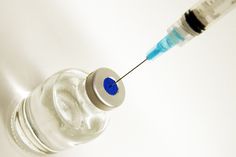What Are Vaccines And How Do They Work?

Vaccines are made to boost the immune system against a particular virus or toxin. Vaccines usually consist of the virus/toxin being targeted, or the virus/toxin being targeted and an adjuvant.
Different states of the virus/toxin are used in a vaccine and include attenuated viruses, killed or inactivated viruses, toxoids, and subunit and conjugate vaccines.
1. Viruses/Bacterial Toxins
Attenuated Viruses
Attenuated Viruses
Attenuated viruses can be made by infecting non-human cells like chicken embryos. The virus is passed through a series of chicken embryos with the goal of making the virus only able to replicate in chicken embryos and not in human cells.
This virus then becomes the vaccine that is administered to people. The immune system still recognizes the virus and produce antibodies to combat the virus, while the virus is not supposed to be able to infect human cells. The immune system will be able to remember the antibodies it produced to kill the virus so any new infections from the real virus will trigger the immune system to produce those antibodies to kill the invading virus.
Inactivated Viruses
Another way of inactivating a virus is by heating it or treating it with a chemical such as formaldehyde. Heating or treating the virus with a chemical destroys the virus’s ability to replicate and and attack cells, while the vaccine’s virus is kept intact so the immune system will produce antibodies that will target the real virus.
Toxoids
Toxoids are vaccinations made from toxins produced by bacteria that have been deactivated. Some diseases are not caused by bacteria, but are caused by the toxins the bacteria produce. Inactivating the toxins allows the immune system to develop antibodies to the vaccine’s toxins without the toxins being able to attack the body.
Subunit and Conjugate Vaccines
Likely the safest of all the virus/toxin usage. Subunit vaccines only contain parts of the viruses and toxins. A specific protein is isolated from the virus or toxins and the immune system will develop antibodies to attack that protein.
Conjugate Vaccines
Conjugate vaccines are similar to subunit vaccines. Conjugate vaccines are made by using a piece of a bacteria that is chemically attached to a carrier protein.
2. Adjuvant
Adjuvants are used to create a super immune response to the antigen in the vaccine. Antigens are any substances that cause the immune system to produce antibodies against them. Adjuvants are toxins like aluminum that trigger a strong immune response. Adjuvants are coupled with antigens to create a stronger immune response than the antigens would create on their own.
[1] Frequently Asked Questions about Adjuvants
[2] Different Types of Vaccines
[3] Inactivated Influenza VIS
[4] How Are Vaccines Made?






